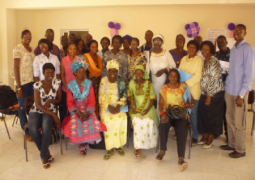The European Union Food and Veterinary Office inspection mission, which visited The Gambia from 26th January to 1st February 2010, issued a report which identified a series of deficiencies in the fish production chain.
This, according to the minister of Fisheries and Water Resources, Lamin Kaba Bajo, was contained in a report by the European Union mission.
The EU mission was in the country to evaluate the control systems put in place to govern the production of fishery products intended for export to the EU countries.
Minister Bajo was speaking yesterday at the opening of a workshop on the establishment of a national fish landing site sanitation taskforce, which is under way at the Cape Point Hotel.
He noted that these deficiencies needed to be addressed by all stakeholders in the fisheries sector to make the country’s products safe.
“The National Association of Artisanal Fisheries Operators (NAAFO) and the Gambia Artisanal Fisheries Development Agency (GAMFIDA) developed a project proposal to address some of the deficiencies identified at the fish landing sites,” Bajo stated.
The project, he noted, entitled Establishment of National Fish Landing Sites Sanitation Taskforce, is financed by the Worldwide Fund for Nature - West African Marine Eco-region and the West African Association for the Development of Artisanal Fisheries to the tune of 3,000 Euros to kick start the project.
He noted that an enforcement taskforce would be entrusted the responsibility of ensuring that the fish landing sites remain clean at all times.
Fisheries Minister Bajo pointed out that the
Minister Bajo expressed hope that Tanji and Gunjur as pilot sites will sustainably improve and maintain both the organisational structure of the taskforce and the equipment, so that they can serve as positive reference points for possible project extension to other fish landing sites in the country.
“Given the scale of irresponsible littering and dumping at our various fish landing sites, leading to the pollution of the marine environment, the implementation of this project will enable fisher folk sites to contribute to government’s efforts in combating illegal dumping, especially at the landing sites and encourage responsible and sustainable waste management practices,” he further stated.





